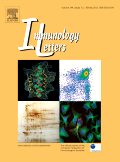
IMMUNOLOGY LETTERS
metrics 2024
Advancing Immunological Insights for Global Impact
Introduction
IMMUOLOGY LETTERS, published by Elsevier, is a distinguished journal in the field of immunology, focusing on the latest advancements and findings that significantly influence immunological research and clinical applications. Established in 1979, the journal has evolved to cater to a global readership, featuring high-quality peer-reviewed articles across a diverse spectrum of topics related to immunity and allergic responses. With an impressive Q2 category ranking in both Immunology and Allergy as of 2023, it holds a strong position within the scientific community, evidenced by its commendable Scopus rankings (Rank #71/233 in Medicine - Immunology and Allergy and Rank #85/236 in Immunology and Microbiology - Immunology). While primarily subscription-based, the journal aims to foster knowledge dissemination that encourages collaboration among researchers and practitioners alike, making significant contributions to the understanding of immune mechanisms. The journal is integral for educators, students, and professionals aiming to stay abreast of current trends and breakthroughs in the immune system's intricate functions.
Metrics 2024
 1.02
1.02 3.30
3.30 3.60
3.60 108
108Metrics History
Rank 2024
Scopus
IF (Web Of Science)
JCI (Web Of Science)
Quartile History
Similar Journals
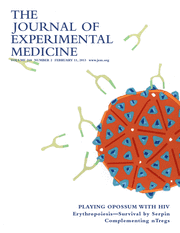
JOURNAL OF EXPERIMENTAL MEDICINE
Pioneering Discoveries in Experimental MedicineJOURNAL OF EXPERIMENTAL MEDICINE, published by Rockefeller University Press, is a renowned peer-reviewed journal dedicated to advancing the field of experimental medicine since its inception in 1896. With an impressive impact factor and categorized in the Q1 quartile for Immunology, Immunology and Allergy, and Miscellaneous Medicine, this journal stands at the forefront of medical research and innovation. It provides a prestigious platform for scholars and practitioners to disseminate groundbreaking findings that drive the understanding of disease mechanisms and therapeutic strategies. While the journal is not open access, it maintains high visibility and engagement within the scientific community, fostering collaboration among researchers, professionals, and students alike. The journal's consistent ranking in the top percentiles of Scopus illustrates its significant impact and commitment to excellence in medical research.

CLINICAL AND EXPERIMENTAL IMMUNOLOGY
Advancing the Frontiers of Immunological ResearchClinical and Experimental Immunology, published by Oxford University Press, is a premier journal that has been a cornerstone in the field of immunology since its inception in 1966. With an ISSN of 0009-9104 and an E-ISSN of 1365-2249, this journal holds a significant position in academic research, currently ranking in the Q2 category for both Immunology and Allergy (2023). Its impactful contributions are reflected in its Scopus rankings, where it stands at Rank #63 out of 233 in Immunology and Allergy, placing it in the 73rd percentile, and Rank #73 out of 236 in Immunology and Microbiology. Researchers, healthcare professionals, and students will find this journal an invaluable resource for cutting-edge studies, reviews, and clinical advancements in the ever-evolving domain of immunology. While the publication does not offer open-access options, it remains a pivotal platform for disseminating knowledge that impacts both clinical practice and experimental research.
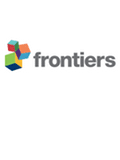
Frontiers in Immunology
Fostering Collaboration in the World of Immunological DiscoveryFrontiers in Immunology is a leading open-access journal published by FRONTIERS MEDIA SA since 2010, dedicated to advancing knowledge in the field of immunology. With an impressive Q1 ranking in both Immunology and Allergy as of 2023, this journal exemplifies excellence in research dissemination, positioning itself among the top 22% of relevant literature in the discipline. The journal, based in Switzerland, emphasizes its commitment to open science by ensuring all published research is freely accessible, fostering collaboration and innovation among researchers, professionals, and students alike. With substantial visibility demonstrated by its ranks within the Scopus database—ranked #52 out of 233 in Immunology and Allergy, and #58 out of 236 in Immunology and Microbiology—Frontiers in Immunology serves as a vital platform for cutting-edge research. Researchers are invited to contribute original investigations and reviews that expand the understanding of immune mechanisms, therapeutic advancements, and clinical applications, making it a cornerstone for those looking to push the boundaries of immunological science.

Immunity Inflammation and Disease
Bridging gaps in understanding immune responses for a healthier future.Immunity, Inflammation and Disease is a premier open-access journal published by WILEY, dedicated to advancing the field of immunology and allergy. Launched in 2013, this journal has established itself as a significant platform for researchers and professionals to disseminate high-quality research findings and innovative insights that address critical issues in immune responses and inflammatory diseases. With an impact factor that reflects its growing influence and a current ranking in Q3 for Immunology and Q2 for Immunology and Allergy, this journal serves a diverse audience keen on exploring cutting-edge developments. Researchers are encouraged to submit their work to share their findings with a global reach, foster collaboration, and enhance the understanding of immune mechanisms and therapeutic strategies. Accessible since its inception, Immunity, Inflammation and Disease is committed to open science, ensuring that vital research is freely available for the advancement of knowledge within the academic community and beyond.

BMC Immunology is a prominent open-access journal published by BMC that has been at the forefront of immunological research since its inception in 2000. Based in the United Kingdom, this journal aims to advance the understanding of immune system functions and disorders through high-quality, peer-reviewed articles. With an impressive scope encompassing various facets of immunology, BMC Immunology has earned a Q3 ranking in the Immunology category according to the 2023 category quartiles, demonstrating its growing impact and relevance in the scientific community. Researchers and professionals will find valuable insights in its array of published works, spanning both foundational studies and innovative applications. The journal's commitment to open access ensures that cutting-edge research is freely available, fostering collaboration and advancement in the field. For those looking to stay updated on the latest developments in immunology, BMC Immunology stands as an essential resource for researchers, professionals, and students alike.
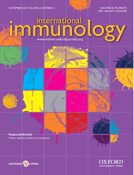
INTERNATIONAL IMMUNOLOGY
Elevating the Standards of Immunological Research Worldwide.INTERNATIONAL IMMUNOLOGY, published by OXFORD UNIV PRESS, stands out as a premier journal in the field of immunology, providing a vital platform for disseminating groundbreaking research and innovative developments within the discipline. With an impressive Q1 ranking in Immunology and Allergy, as well as in Medicine (miscellaneous), it consistently showcases high-impact studies that contribute to the advancement of immunological knowledge. The journal spans over three decades, from its inception in 1989 to its ongoing contributions as of 2024, thus solidifying its reputation in the scientific community. Researchers, professionals, and students will find valuable articles that delve into the complexities of immune responses, therapeutic interventions, and emerging immunological paradigms, ensuring INTERNATIONAL IMMUNOLOGY remains at the forefront of knowledge in the life sciences.

CELLULAR IMMUNOLOGY
Fostering Innovation in Immunological ScienceCELLULAR IMMUNOLOGY is a prestigious journal published by Academic Press Inc. Elsevier Science, dedicated to advancing the field of immunology. Established in 1970 and converging ongoing research up to 2024, this journal has carved out a significant niche within the academic community, boasting a notable Q2 ranking in the Immunology category and holding a respectable 67th percentile ranking within Scopus for its contributions to the disciplines of Immunology and Microbiology. The journal serves as a vital platform for disseminating high-quality research, reviews, and methodologies that elucidate the intricacies of cellular immune responses, thereby benefiting researchers, professionals, and students alike. Although it does not offer open access, the journal's impact is evidenced by its comprehensive coverage of pioneering studies and ongoing developments in the immunological sciences, positioning it as an essential resource for those seeking to deepen their understanding and engage with the latest findings in cellular immunology.

NATURE IMMUNOLOGY
Connecting researchers to the forefront of immune system studies.NATURE IMMUNOLOGY is a premier academic journal published by NATURE PORTFOLIO, dedicated to advancing the field of immunology. With an impressive impact factor that reflects its esteemed position, this journal ranks in the top quartile (Q1) of renowned categories, including Immunology and Allergy. Serving as a crucial platform for researchers, professionals, and students, NATURE IMMUNOLOGY showcases cutting-edge research, comprehensive reviews, and insightful perspectives that drive innovation in immunological science. Based in the United Kingdom, this journal has been a vital contributor to the global discourse on immune responses and related diseases since its inception in 2000. Researchers can benefit from its rigorous peer-review process, ensuring that only high-quality studies are disseminated, thus enhancing their academic pursuits and practical applications. Explore the latest findings and trends within this flourishing discipline, making NATURE IMMUNOLOGY an essential resource for anyone engaged in the study of the immune system.
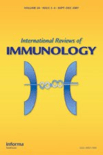
INTERNATIONAL REVIEWS OF IMMUNOLOGY
Unlocking Insights in Immunology and AllergyINTERNATIONAL REVIEWS OF IMMUNOLOGY, published by Taylor & Francis Inc, is a leading academic journal that has been a cornerstone of immunological research since its inception in 1986. With an impressive impact factor and ranked in the top quartiles of its field (Q2 in both Immunology and Allergy), this journal offers a critical platform for the dissemination of influential findings and advancements within immunology. Spanning a diverse array of topics, from basic immune mechanisms to clinical applications, it aims to support the global scientific community in enhancing immunological understanding and therapeutic interventions. Researchers and professionals alike benefit from insights provided by renowned contributors, ensuring that the journal remains relevant in a rapidly evolving field. Directly accessible through subscription or institutional access, INTERNATIONAL REVIEWS OF IMMUNOLOGY is committed to fostering collaboration and innovation, making it an essential resource for anyone involved in immunological research and practice.

EUROPEAN JOURNAL OF IMMUNOLOGY
Championing Innovative Insights in ImmunologyWelcome to the European Journal of Immunology, a premier peer-reviewed journal dedicated to advancing the field of immunology and allergy research. Established in 1971 and published by Wiley, this esteemed journal has been consistently ranked in the top quartile (Q1) across its categories, highlighting its significant impact within the scientific community. With an impressive Scopus ranking, the journal occupies the 64th position in Immunology and Allergy and the 74th in the broader sector of Immunology and Microbiology, demonstrating its vital role in driving innovation and knowledge in immunological studies. The European Journal of Immunology publishes high-quality original research, comprehensive reviews, and insightful commentary, making it an indispensable resource for researchers, healthcare professionals, and students dedicated to understanding the complexities of the immune system. Although not an open-access journal, it offers various subscription options to ensure that institutions and individuals can access pivotal research that shapes the future of immunology.